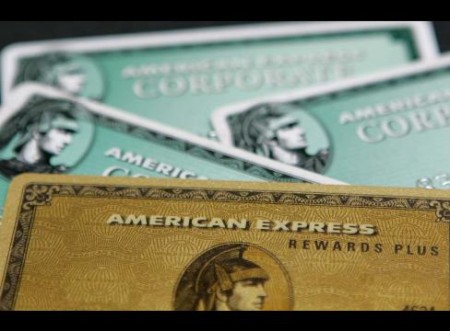
June 25 (Bloomberg) — American Express Co., the biggest U.S. credit-card company by purchases and cash advances, said customers are falling further behind on their debt, signaling the economy is worsening.
“Business conditions continue to weaken in the U.S. and so far this month we have seen credit indicators deteriorate beyond our expectations,” Chief Executive Officer Kenneth Chenault said in a statement today announcing the company would receive as much as $1.8 billion in a settlement with competitor MasterCard Inc.
American Express and rivals Capital One Financial Corp. and Discover Financial Services have fallen by more than a third in the past 12 months in New York trading as consumers absorb the housing slump, rising unemployment and higher food and fuel bills. New York-based American Express adopted a “cautious view” for the year in January after cardholder spending slowed and overdue payments rose in December.
“If you look at the employment situation, clearly that’s deteriorated, and consumer confidence is down as well,” said Sanjay Sakhrani, an analyst with KBW Inc. in New York who has a “market perform” rating on the stock. “Both play a key role in the credit-card industry.”
The Federal Reserve today left its benchmark interest rate at 2 percent, saying “uncertainty about the inflation outlook remains high.” Consumer prices rose 4.2 percent in the 12 months ended in May, the fastest pace since January, while the unemployment rate rose by the most in more than two decades.
Consumer Confidence
Confidence among Americans dropped to the lowest level in 16 years, the Conference Board said yesterday.
